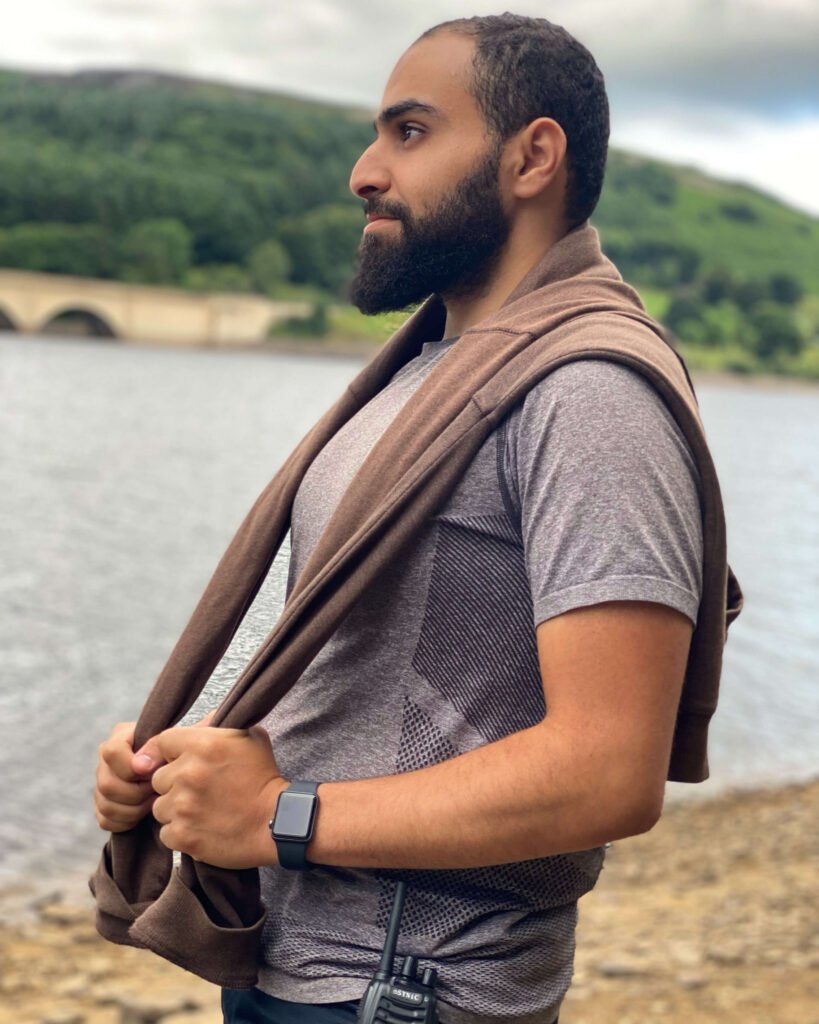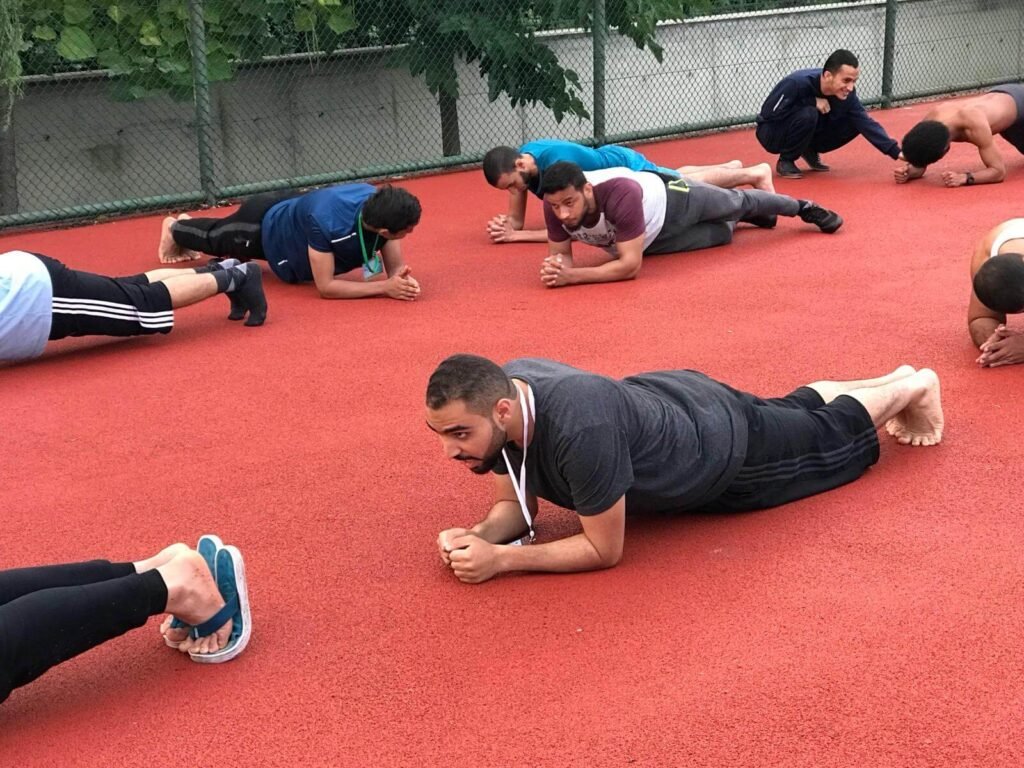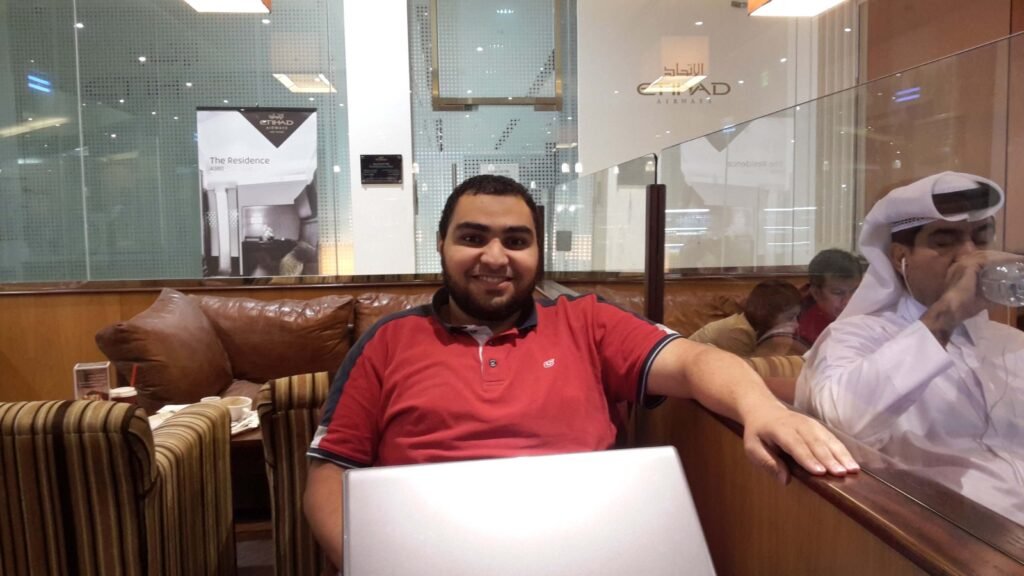
From Pain… to Founding
Dr. Mohammad believes that gaining weight is not a disease, but rather a response to accumulated habits. Therefore, he founded “Afia Diet” to redefine the concept of dieting, moving away from temporary diets, focusing on habit modification, instilling awareness, and achieving sustainability.
His vision stemmed from being an Arab young man raised in an environment dominated by overeating and the influence of companies and advertisers without awareness. From this perspective, he felt that it is our duty as Muslims and Arabs to prioritize correct knowledge and strive to apply it before others, not the other way around.

Afya Diet: Between Scientific and Religious Reference
Behind “Afia Diet” stands a balanced approach that combines:
- Precise scientific foundations supported by research.
- A clear religious reference based on Prophetic medicine and the objectives of Sharia.
- Personalized plans for each individual according to their lifestyle, rather than ready-made systems.
- Weekly communication with clients to address the root cause, not the symptom, by adjusting one dietary habit at each stage.
Dr. Mohamed rejects promoting any method that is unscientific or against natural instincts, such as strict vegetarian diets without necessity, and emphasizes that the Prophet ﷺ was not vegetarian, and that moderation and variety are fundamental.
The mother is the beginning
He sees the mother as the key to real change, because she influences the child’s manner, the family, and even the spouse. He believes that changing cooking, shopping, and serving habits starts with her. For example, he considers that artificial sauces are no less harmful than cigarettes and should be treated as an environmental hazard within our homes.
His personal story… is not just an experience
He was never ashamed to talk about his experience — instead, he turned it into the core of his message.
He used to struggle with:
-
People’s comments
-
Difficulty with clothing
-
Low overall energy
-
Frequent mood swings
The real transformation began while he was studying physiotherapy and nutritional sciences, and he continued it during his travels abroad.
Relying solely on his determination, he started with a simple step: reducing portion sizes without deprivation, and enjoying the chocolate he loved in moderation.
Over time, his taste in food completely changed, and he began to choose healthy foods — not as an obligation, but as a conscious decision.

Why do you need a specialist like him?
Dr. Mohamed believes that losing weight is easy, but the most important thing is to ensure that the plan is safe and sustainable. Therefore, he does not give any advice without precise scientific references and always focuses on realistic, balanced solutions that avoid slogans.
Even when he receives common questions such as:
- “Why do I eat little but still gain weight?”
- “Why do I have a belly even though I exercise?”
He first begins by analyzing lifestyle and habits, and allocates a personalized dietary plan for each group according to their circumstances (youth, mothers, chronic patients, children…).
Future vision
- Within a year: Dr. Mohammed wants to see “Afya Diet” as a trusted source for nutritional awareness in the world.
- Within 3 years: He aims to build a comprehensive digital system of courses and specialised content, making “Afya Diet” a role model for promoting health awareness among families and household members.
- He does not aspire to open a clinic, but believes that the future belongs to digital and online systems that break barriers and reach every home.



